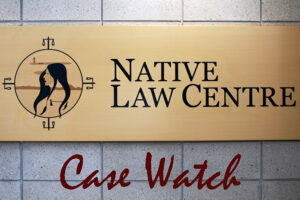Application allowed. An order for the surrender of an Indigenous person to face charges of money laundering in the United States is remitted to the Minister of Justice for reconsideration.
This is a judicial review of the decision of the Minister of Justice [“Minister”] that ordered Mr. Sheck’s surrender to the United States of America [“USA”] on charges of money laundering. The relief sought is to have the surrender order quashed, or in the alternative, have the matter remitted back to the Minister for reconsideration. The majority of this Court determined that the Minister failed to appreciate the disparity of the more severe sentence the accused would likely be given in the USA if convicted. As well, the Minister failed to consider the accused and his children’s Indigenous heritage and the context of the historical mistreatment by Canada of Indigenous families which forcibly separated children from their parents and culture.
The standard of review with respect to the Minister’s surrender decision is not in dispute. The Minister’s decision is entitled to deference, and interference is warranted only in exceptional cases of “real substance”. This Court considered whether the Minister’s decision fell within a range of reasonable outcomes, and if the correct legal test was applied (Lake v Canada (Minister of Justice), 2008 SCC 23 [“Lake”]; s 57(7) of The Extradition Act). This standard of review recognizes that the decision to surrender the accused is largely political and involved the Minister’s superior expertise with respect to Canada’s international obligations and interests (India v Badesha, 2017 SCC 44). The Minister must take into account Canada’s international obligations, but also consider the rights of the person sought.
Pursuant to s 7 of the Charter, a person is not to be deprived of the right to life, liberty and security of the person except in accordance with the principles of fundamental justice. In the extradition context, the Minister is not to surrender a person if surrender would “shock the conscience” (Lake) or not to surrender the person if the consequences of surrender would be “contrary to the principles of fundamental justice” (MM v United States of America, 2015 SCC 62 [“MM”]). This necessarily includes, when relevant, the best interests of that person’s children who may be affected by the extradition (MM).
The accused faces a potential sentence of 27 years imprisonment if convicted in the USA. If he enters a guilty plea in a timely manner, that might be reduced to a range of 19 to 27 years imprisonment. In contrast, the Minister considered only the maximum sentence an offender would face in Canada for a corresponding offence of ten years under s 462.31 of the Criminal Code. Mr. Sheck is Indigenous, employed, has a long-term spousal relationship, and supports and is actively involved in parenting four children. It is unlikely that Mr. Sheck’s circumstances would result in the maximum sentence in Canada of ten years’ imprisonment. The authorities suggest that a sentence for money laundering alone in Canada could range from a conditional sentence of less than two years, to a custodial sentence of 18 months to five years (R v Rathor, 2011 BCPC 338; R v Garnett, 2017 NSCA 33; R v Lawrence, 2018 ONCA 676; R v Barna, 2018 ONCA 1034; R v Bui, 2006 BCCA 245; R v Abdel, 2019 ONSC 690; R v Williams, 2019 NBPC 1; R v Rosenfeld, 2009 ONCA 307). The Minister cannot have truly appreciated the gross disparity between the two potential sentences the accused would face.
The Minister also failed to consider the impact of separating the accused from his children in the context of their common Indigenous heritage. Historically, the government-approved residential school program separated Indigenous children from their parents and communities, depriving them of their Indigenous culture and often subjected them to abuse. In numerous contexts, not just sentencing or extradition, the courts are called upon to consider the legacy of harm to the Indigenous peoples in Canada when determining a legal right or remedy (United Nations Declaration on the Rights of Indigenous Peoples; United Nations Convention on the Rights of the Child; Truth and Reconciliation Commission of Canada, 2015 [“TRC Report”]). Specifically, in the “Calls to Action”, the TRC Report identified five action items relating to Indigenous child welfare, including keeping Indigenous families together where safe to do so.


